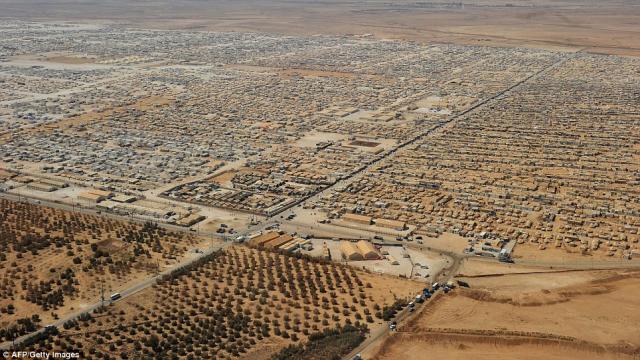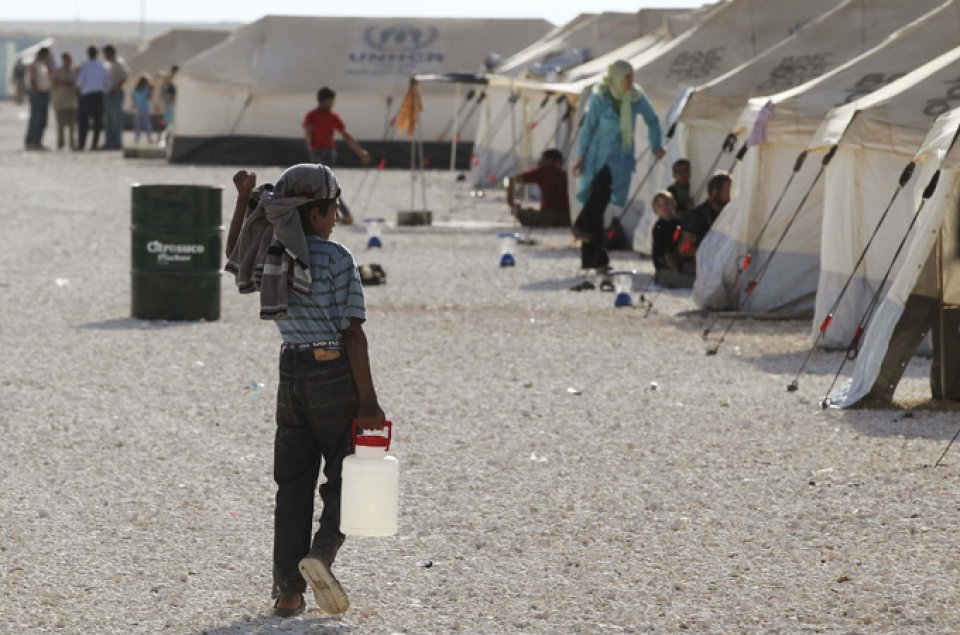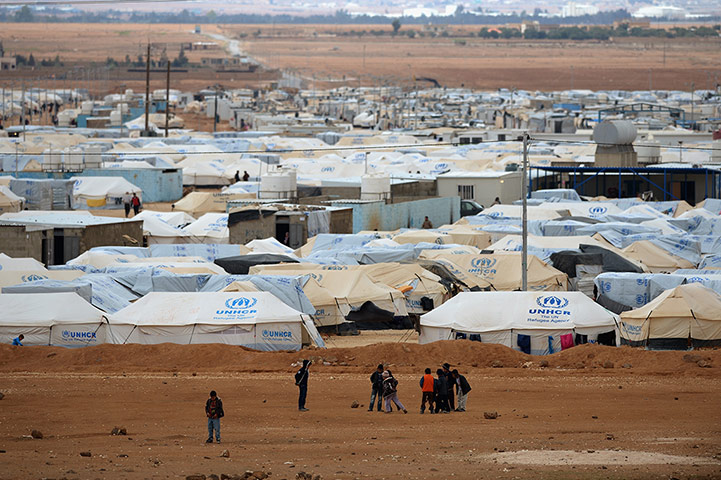
SAN FRANCISCO — Abu Ghazi is a man who brings smiles to people’s faces. Last December, while giving inexpensive haircuts and shaves to passersby, including journalists who spent time with him and his family, he made almost all those watching laugh. Today, some nine months removed from the onset of that freezing winter, Abu Ghazi has little to smile at.
With the Obama administration pressing Congress to approve its plans to attack the Syrian government, Abu Ghazi and his family are not convinced the strikes will bring anything but more hardship and a “trail of blood.”
Speaking by cell phone to Occupy.com from inside the massive Zaatari refugee camp – now Jordan’s third-largest city – the 30-something barber wants nothing to do with violence. He’s says he's seen enough.
“I don’t know why the world wants to fight this situation with more bombs, bullets and caskets,” he says, with the background mumbling as dozens have surrounded the phone, now on speaker, as he discusses the sentiments of those in the camp.
“We are tired. Our families are tired. We have seen people we know and love shot in front of us. Now, having been here one year, we want to see an end to the war that is making our home so far away,” he adds.
Zaatari camp is within eyesight of the Syrian border and the border town of Dara’a, home to some of the bloodiest battles and bombing campaigns unleashed by the Bashar al-Assad regime against civilians. Last December, Abu Ghazi and his cousin, Mohamed – a taxi driver from Dara’a who had been living in Damascus with his wife and children – watched as fighter jets soared near the city. This is the reason, they say, that they now call a Jordanian refugee camp home.
Jumping on the line, Mohamed, who speaks some English, says that across the camp, in the schools and the bathrooms, all talk has turned to Obama and America. He is not pleased that the U.S. is planning to bomb his native country and argues it will lead to widening violence between the rebel forces and Assad’s military.
“We know our country best. There was a time when we wanted the international community to intervene and save us from death, but now it is too late. How many people had to die before something happened? It is bad, very bad,” he says, his voice blunt and without the vitality it had when this reporter spoke with him only months before.
He, like Abu Ghazi and others, are waiting impatiently as Congress debates whether or not to bomb the country. They are all expecting the approval to come, and the deaths to follow.
“How much blood is on America’s hands? On Obama’s hands? They kill in Yemen, they kill in Pakistan and Iraq. Now they will kill in Syria. Fighting war with more war will leave us Syrians dead. It isn’t what we want,” Mohamed adds.
The conversation turns to daily life in the camps and the struggle to make do with what little the refugees have. A library has been erected and schools function, but there is little downtime. It is fall now, and with winter approaching, the Syrians fear that without much-needed assistance they will experience more deaths. Last year, refugees died as a result of the cold, and the same is expected this year.
But the impending U.S. attack on Syria returns to the forefront. The men standing around Abu Ghazi and Mohamed jump into the conversation, over and over. They want to know why the Americans are preparing for war when the country has already found itself in the midst of a bloody civil war.
“It won’t stop the killing, on both sides,” says one man. “I know it will make both sides use the attacks as a means to launch more violence and killing. We all know chemical weapons were being used, but is that the final reason that Obama wants to bomb? He doesn’t care about our children, our wives, our people. If he did, this would have happened years ago.”
Resounding “yeses” are heard as the line abruptly cuts off. This is life in Zaatari, where refugees wait to hear on a weekly basis from their families who still remain in Syria, expecting the news of a relative's death. Now, as the Obama administration prepares for a military campaign, they again sit on the sidelines, waiting anxiously to see what new carnage will arrive in their home country only a few miles away.
3 WAYS TO SHOW YOUR SUPPORT
- Log in to post comments















